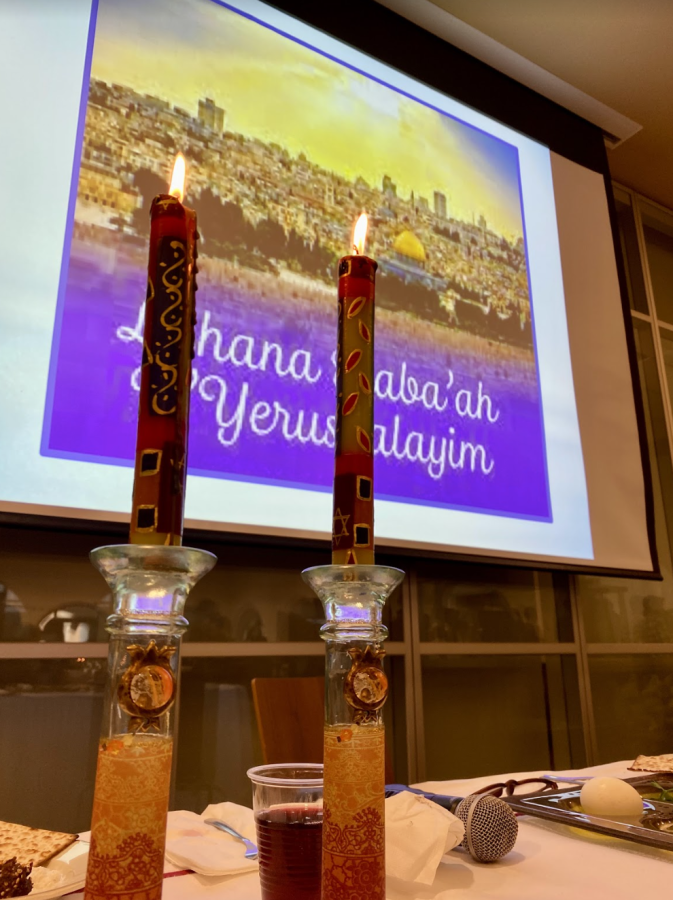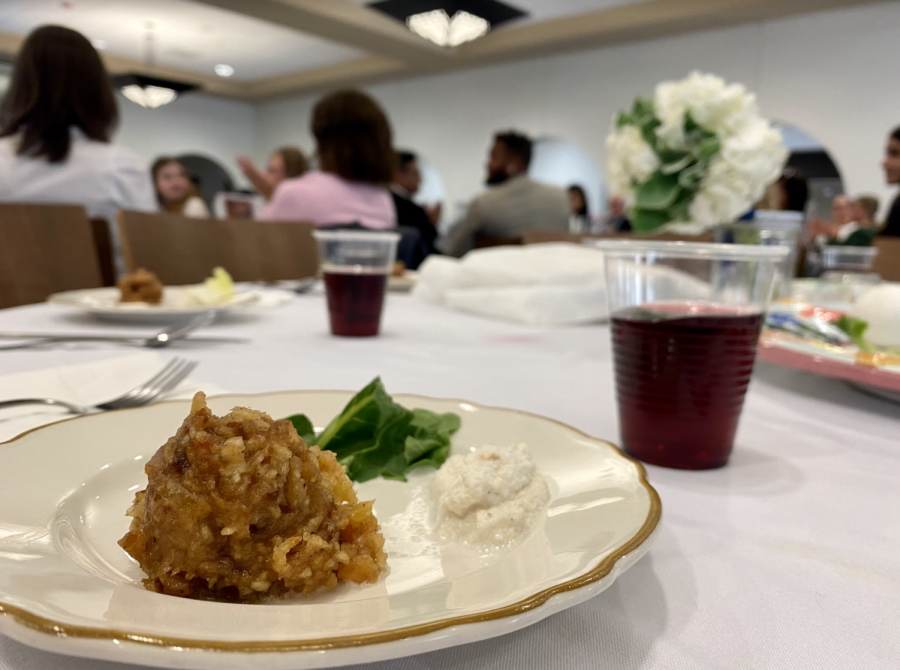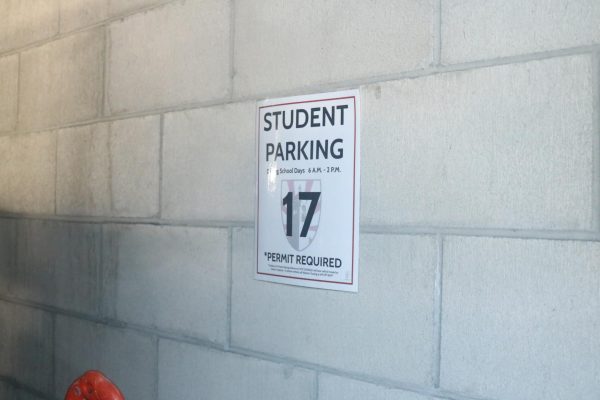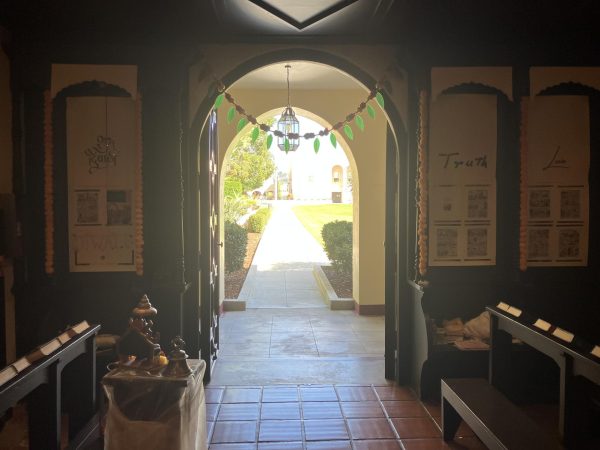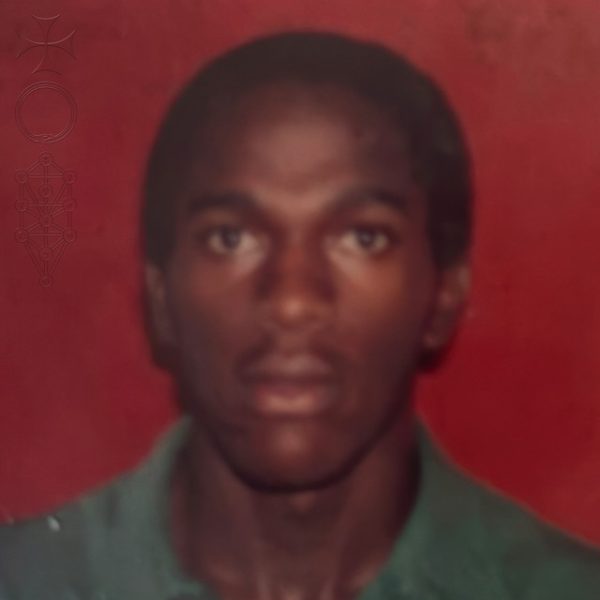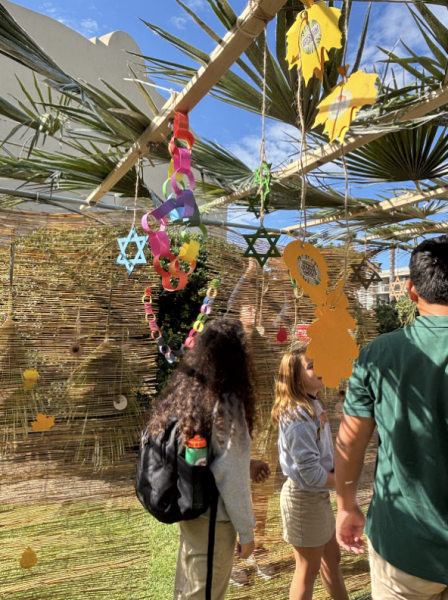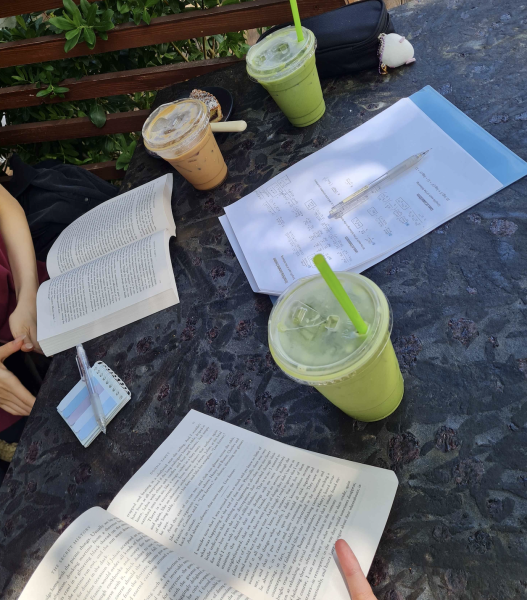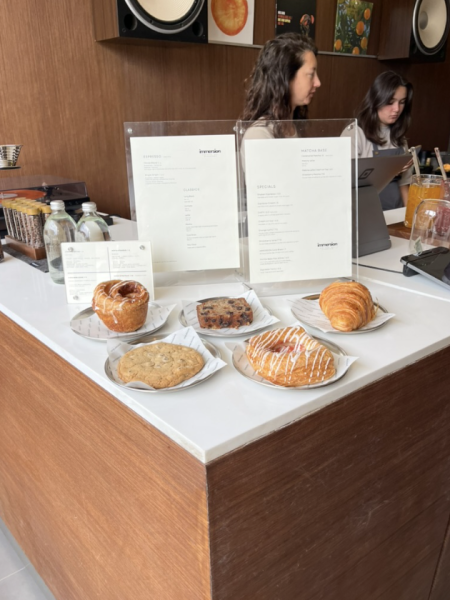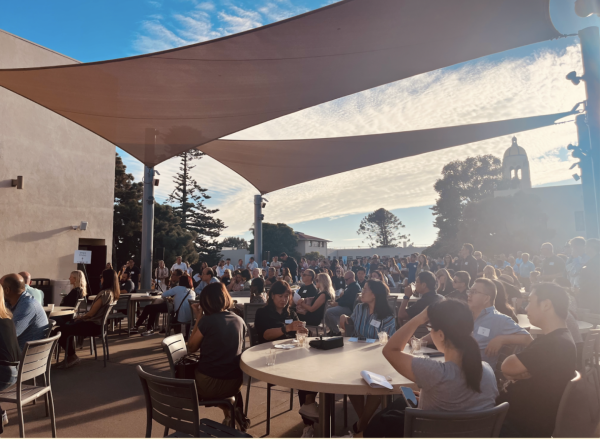Matzah, Morar, and Memories
A recap of Bishop’s first guided Seder dinner on campus
“L’Shana Haba’ah B’Yerushalayim,” as shown on the projector, means “Next Year in Jerusalem.” Families around the world end their seder with this prayer.
“Da-da-yenu, da-da-yenu, da-da-yenu, dayenu dayenu!” Many are familiar with this common Passover song, with the Hebrew word Dayenu meaning, “it would have been enough.” As Jews across the globe celebrate the week of Passover, they remember the compassion God showed the Jewish people in liberating them from slavery in Egypt.
On April 19, 2022, Bishop’s hosted their first guided seder dinner on campus. Students, family members, and other parts of our community joined together at the end of a busy day to celebrate with each other and learn about the traditions of the Jewish religion. Between students narrating the great liberation story and enough matzo ball soup to feed an army, it was an enlightening experience for many.
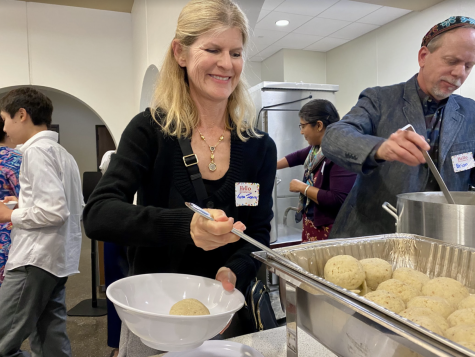
For a little while now, Director of Global Education and Religion & Ethics Teacher Dr. David Moseley wanted to host a seder on campus; but it wasn’t until this year when Ms. Lori Shearer (mother of Zachary Haubenstock ‘28) stepped up to lead the way. “I wanted to remain authentic to the tradition for the Jews that came to the seder, but I also wanted to be inclusive to people who may have never heard of anything about Judaism,” Ms. Shearer shared.
For Joy Udinsky (‘24), who has only taken part in one service before, “[the seder helped her] understand the traditions of Judaism a lot more.” Her older brother, Jay Udinsky (‘23), felt similarly. “I really love this community and especially how welcoming and compassionate everyone is.” While a traditional seder typically includes the biblical story of Exodus out of Egypt, Hebrew songs, and can last a few hours, the Bishop’s seder had a brief telling of the story, with the actual service only lasting around 45 minutes.
Those who considered themselves to be mildly or highly observant Jews were also able to appreciate the simplicity of the event. “It was really nice to be [at the seder] and see everyone who came out to support it,” Jonas Pffeferman (‘24) expressed. “I [remember] hearing people talk about this in 8th grade, so it was pretty cool that they finally made it happen.”
Ms. Arlene Bernstein, a rabbi and cantor at the local Jewish synagogue, Cantor Congregation Beth Israel, commented, “I thought this was an exceptional seder, especially for an interfaith group. The use of social justice as part of the seder was also very important, and I think that is what having a seder is all about.” Towards the beginning of the service, History and Social Sciences Teacher Mr. Matthew Valji shared a short dedication to the citizens of Ukraine, which many felt was a particularly moving moment of the dinner. “It would not be enough for us to merely retell the Exodus,” Mr. Valji reflected. “Just recapitulating the suffering and the survival of the Jews rings hollow if we do not channel the experiences of our people into compassion for those around the world suffering in Ukraine,” he concluded.
For many students and younger siblings, the interactive and educational games were some of the best parts of the night. A common tradition on Passover is the searching of the afikomen, which derives from the Greek word for “dessert.” The idea is that Jews leave the seder with the taste of matzah in their mouths. In brief, parents or elder siblings hide a piece of matzah wrapped in a napkin, while younger family members run around and look for it. This year, sophomores Lily Gover and Joy Udinsky had the honor of hiding the afikomen; and freshman Riley Brunson was the lucky winner who sought it out and was awarded a prize.
Finding the afikomen was really fun, Riley said. At first, Riley and her friends ran over to the senior rec room, but when the matzah didn’t seem to be around there, the knight statue near dish drop and the vending machines caught her eye. “[I remember thinking, ‘that would be a clever place! And thinking Lily Gover, it would be a very Lily place to hide something,’” Riley shared.
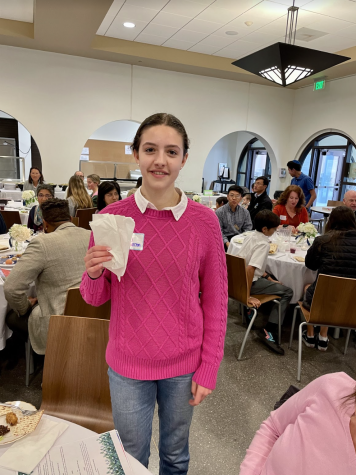
And to finish off the festivities, before the final prayers, Dr. Moseley hosted a Kahoot, which was competitive, educational, and exciting. “I felt like I learned a lot!” Alexa Chan, a younger community member, reflected.
“The more we eat each other’s food, dance each other’s dances, and observe how other faiths pray, the more human we become together, and the less likely that hate will prevail,” Ms. Shearer expressed. “There’s a saying [by Mahatma Gandhi], ‘Be the change you want to see in the world,’ and this was that change.”
“I had a lot of fun, and hopefully will be back to do it again next year,” Riley shared.
So without further ado, “L’Shana Haba’ah B’Yerushalayim.” “Next year in Jerusalem.”
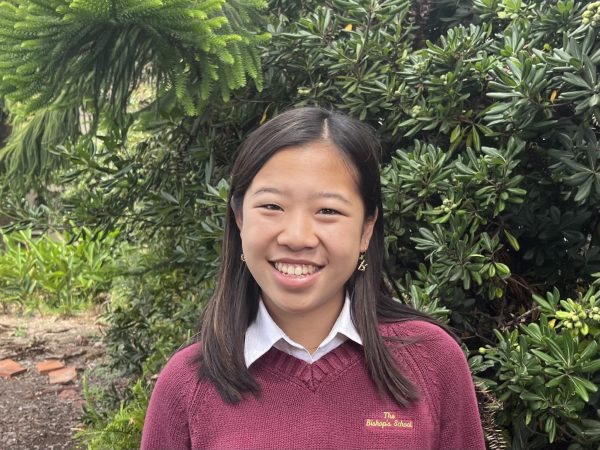
Sydney Chan is an Editor-in-Chief for The Tower dedicated to discovering unique stories and bringing them to life through her pieces. She especially loves...


